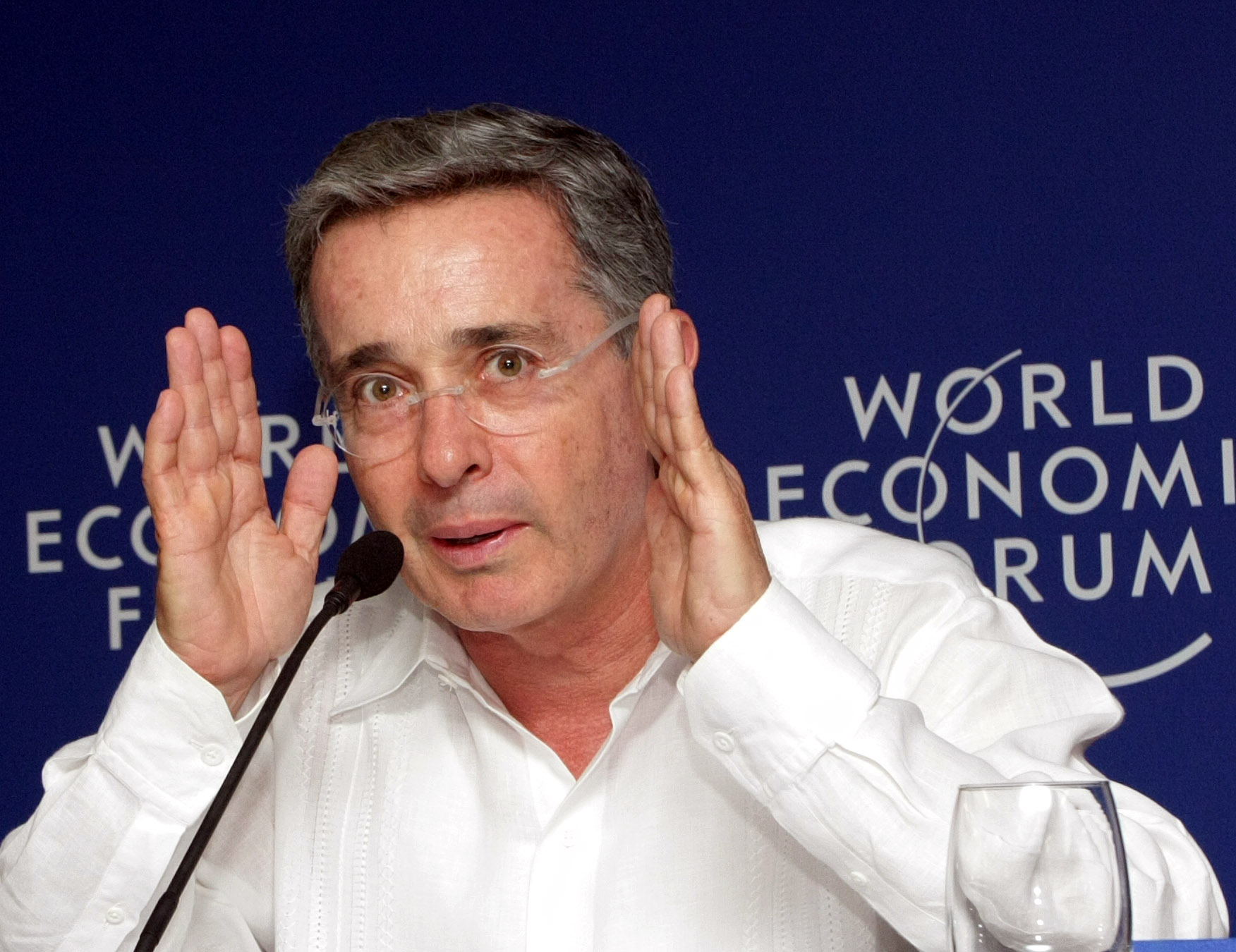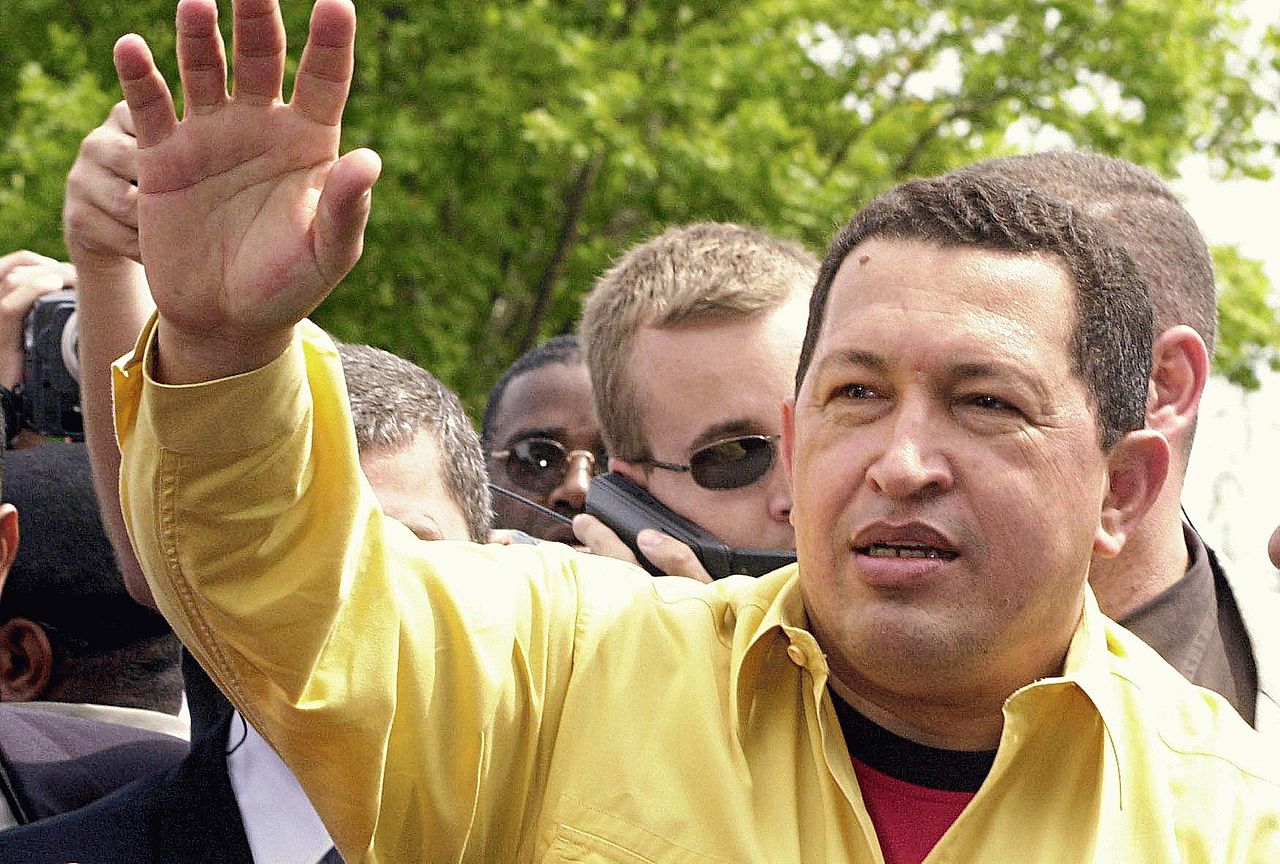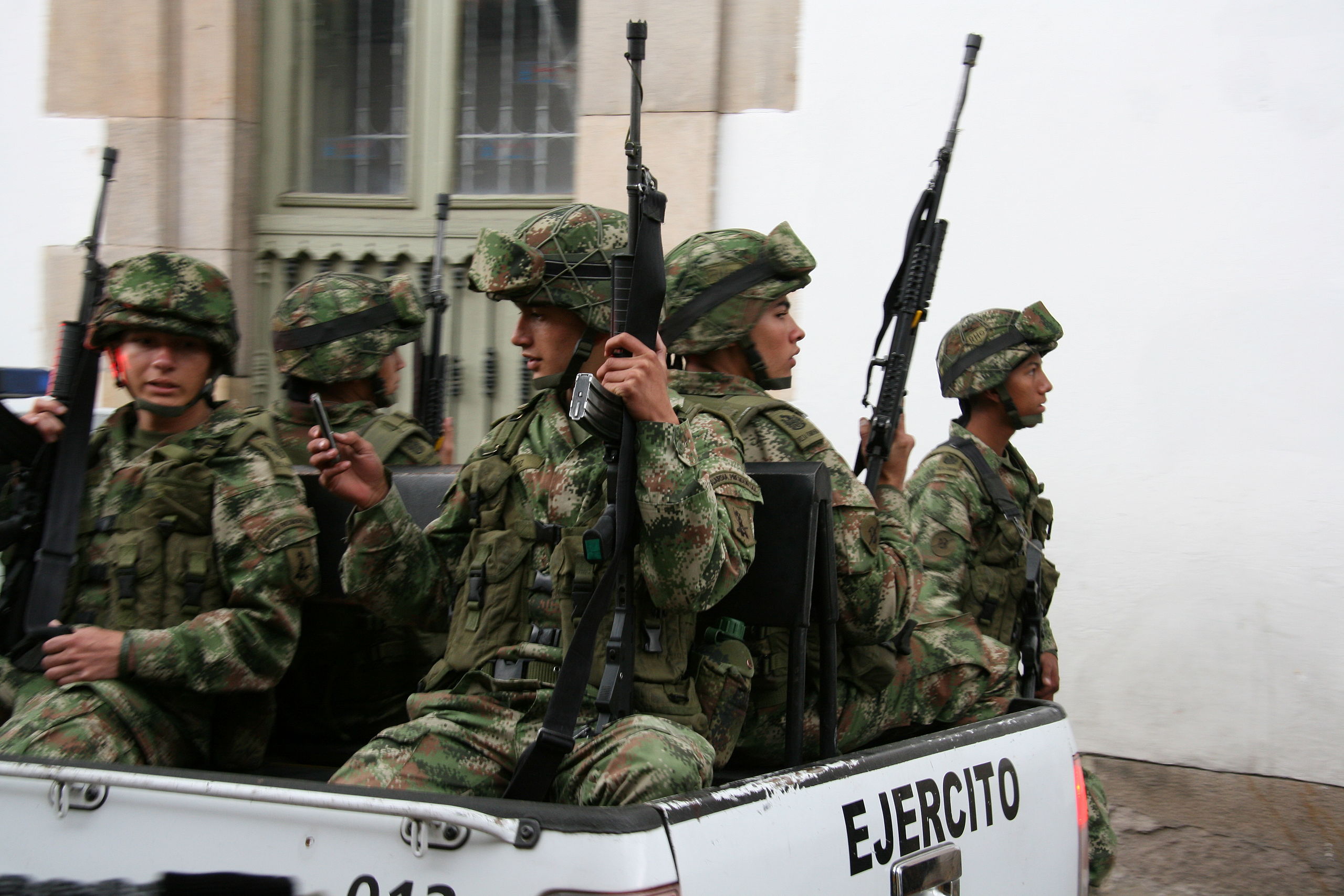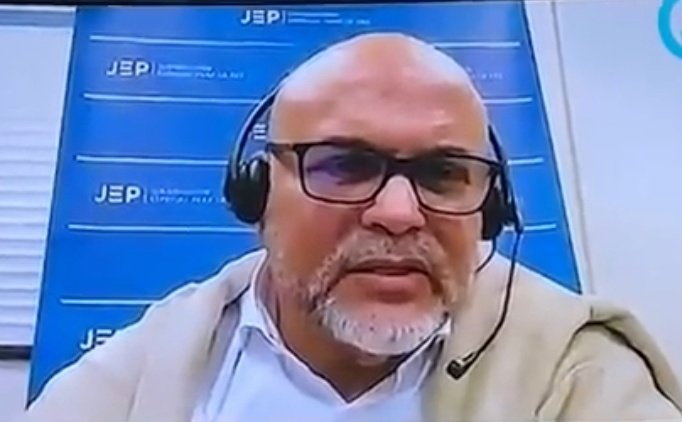A former leading paramilitary officer has given explosive, public testimony on the close collaboration between the right-wing thugs under his command and the Colombian capitalists and landowners, who for decades relied on these forces to terrorise the workers and peasants.
The JEP is a “transitional justice” body created as part of the Peace Accords of 2016 between the FARC-EP and the state. Its stated goal is to uncover all crimes committed by the main actors in the Colombian Civil War on both sides. So far, it has focused on “false positives” (civilians executed by the military and dressed up as guerrilla combatants), child recruitment and kidnapping by the FARC, and documenting the political genocide in the 1980-1990s. However the body is open for any other players willing to give new statements that could help to uncover more details of crimes.
One of these players, and key to all, is Salvatore Mancuso, former second-in-command of the paramilitary organisation formally known as the United Self-Defence of Colombia (AUC).
Throughout his four-day-long testimony, Mancuso explained in great detail how the right-wing paramilitaries were directly responsible for torturing and executing trade union leaders and left-wing militants at the behest of the Colombian ruling class, with former presidents and vice-presidents being directly involved. This grim testimony exposes the rottenness of the capitalist class and its political leaders, but that also raises the question about the true servants of the current political institutions.
A long nightmare
The emergence of paramilitary forces (armed bodies of civilians outside the military) was not new to the Colombian civil wars. Even during the period known as “The Violence” (La Violencia), throughout the 1940s and into the 1950s, there were many groups such as “Los Pájaros” that were used by the Conservatives, in order to attack the radical Liberal “gaitanistas” (sympathisers of the liberal faction lead by Jorge Elicer Gaitán), as well as trade union and Communist organisers. However, the military quickly regained its position during the first clashes against the newly formed guerrillas (FARC and ELN), and the civil war in Colombia was for a time a fight between the state and the guerrillas.
The rise of drug trafficking changed this in the late 1970s and 1980s. Drug lords quickly rose in the social ladder, and when guerrillas began extorting them, the Medellin and Cali Cartels began to muster armed groups to hunt them down. This quickly turned out to be a quid pro quo with the rotten state apparatus. During these years, cartels and politicians worked side by side to eradicate the guerillas, until Pablo Escobar’s “war on the State'' campaign created an enormous vacuum of power.
It was here that today’s paramilitary groups had their inception. In the middle of the clashes between drug lords, guerrillas, the state and the emergence of mass, left-wing popular movements such as the UP (Union Patriotica), Colombia was at the crossroads of reaction, reform and revolution. Fearing the growing mass movement that was reflected in the Patriotic Union (UP), a joint front of the FARC, the Colombian Communist Party, and other left-wing parties, and the recently demobilised M-19 (a guerrilla force that signed a peace deal in 1990), political violence renewed.
The armed gangs of the drug lords began to do the dirty work for the capitalist state. During the 1990 presidential elections, three candidates (Luis Carlos Galan, Carlos Pizarro and Bernardo Jaramillo) were slain. The latter two were the M-19 and UP runners, respectively. This created a scenario for the continuation of “economic openness”: ultra-liberal policies that had begun during the government of Virgilio Barco (1985-1990) by Carlos Gaviria, who substituted Luis Carlos Galan in the presidential race. Amid this, the embryo of the paramilitary started to develop, but still basing themselves on small armed groups.
The fall of Escobar would forever change this. As previously mentioned, the vacuum created by Escobar’s death created opportunities that were capitalised on by the Castaño brothers (Carlos and Fidel), who split from the drug lords and began to cultivate relations with the state security apparatus. From there followed a 10-year-long period of reaction where the Castaños would spread terror amongst the population in order to try and erase the memory of popular uprisings, such as the 1977 general strike and El Bogotazo.
An ‘unholy’ alliance
It is within this timeframe in which one can analyse the statements given by Mancuso. The AUC quickly took over many of the former Medellin’s cartel contacts with the state. Their ranks swelled quickly, not just in terms of manpower but weaponry and intelligence. The “paracos” were omnipresent in the daily life of much of the Colombian hinterland, and more specifically in crucial economic zones, such as Antioquia, the Coffee Belt and the Eastern Plains. But it was in the northern Caribbean region where they basically became a “state within a state”. The states of Sucre, Magdalena, Cesar, and La Guajira quickly became their centres of power
This created a paradox, as the economic elites were willing to ease their operations, and also to get rid of “undesirables''. Local political clans in those states were the first to use the services of the paramilitaries, but as the statements showed, the largest economic corporations in Colombia, such as Postobon, paid tribute to them in order to secure their operations in these regions. Trade union activities were branded as “Marxist subversion” and labour activists persecuted and killed. There were hints of that cooperation already in earlier investigations against Chiquita Banana, but the statements of Mancuso are the first to publicly detail the links with these “respectable businessmen” by name.
Capitalist corporations, national and multinational, as well as the Colombian capitalist oligarchy, had no qualms in using the brutal paramilitary gangs to maximise their profits and destroy any attempt by workers and peasants to organise.
Grim details can be listed here. Mancuso, with a stoic voice, detailed repression tactics ranging from massacres (such as the ones in El Aro and La Granja in Antioquia during the governorship of Alvaro Uribe), torture, killings and disappearances. He explained how these massacres in 1996 and 1997 were carried out in close collaboration with the Colombian Army:
“There was prior preparation for more than a year before the operation. I personally met with General Manosalva (...) There was coordination with the troops on the ground, colonels, majors, captains, and there was a movement of troops from Urabá, Córdoba, the Antioquian lower Cauca region, and all these troops mobilised to arrive up there”.
He also detailed how the displacement of the peasantry led directly to land grabbing by the paramilitary commanders and their allies in order to raise their private profits, on top of the handsome payments from private businessesmen in order to stop any unionisation attempts.
 Mancuso detailed the ties with former president Alvaro Uribe Velez, throughout his governorship of Antioquia, and then in the 2002 election / Image: World Economic Forum, Flickr
Mancuso detailed the ties with former president Alvaro Uribe Velez, throughout his governorship of Antioquia, and then in the 2002 election / Image: World Economic Forum, Flickr
The paramilitaries were in their prime. Their ties with the state had reached the very centre of Colombian military intelligence (DAS), and many assassinations at the time (such as the one of Jaime Garzon, a famous journalist and satirist with left-wing sympathies) were joint operations with the DAS, according to Mancuso. Again, this had been hinted at in previous investigations and declassified documents by the CIA, but now confirmed by Mancuso.
He gave abundant details. The amount of information is like a tsunami that has swallowed the Colombian political right-wing status quo. It practically confirms that the capitalist class graciously sacrificed the fiction of the “rule of law” they prided themselves on in order to subdue any kind of mobilisation of the working class through open terror.
For instance, Mancuso detailed how the paramilitaries had both candidates at the 1998 election (Andres Pastrana and Horacio Serpa) in their pocket. He also detailed the ties with former president Alvaro Uribe Velez, throughout his governorship of Antioquia, and then in the 2002 election. Lastly, Mancuso pointed to the links between the mass media and the traditional capitalist elite, such as the aberrant proposal of Francisco Santos (Uribe’s vice president) to create the “Capital Bloc” so that the capital city of Bogota could also “enjoyed” the privilege of paramilitary-enforced “security”.
The transitional justice
Many right-wingers point to the existence of Justicia y Paz, a special prosecution unit created during Alvaro Uribe’s presidential government, as a proof of the dubious credibility of Mancuso. Why, they ask, is it only now that he has given this information? This was echoed by Uribe and his loyal lackey, former president Ivan Duque on Twitter. The implication is that Mancuso is making up his testimony in order to gain a reduction in his sentence, which he still needs to serve in Colombia.
Perhaps the answer lies in the cynical move made by Uribe just after the accord was signed. It was not long after the famous speech by Mancuso in the Colombian Congress in 2004. At that time, it seemed that the paramilitary commanders would enjoy the wealth accumulated via drug trafficking and land grabbing. But almost all the commanders were accused of continuous engagement in drug profits by the government and extradited to the US in 2008. Mancuso was one of the first to fall, followed by another 12, and was promptly sent to the US.
This was during Uribe’s ‘Democratic Security' era in which he did not need someone that could spill dirt on him, as well as portraying his “iron fist”. Other commanders that had not signed the accord were slain (such as Carlos Castaño) and a new set of groups were born, many of which would later converge in the still-active “Clan del Golfo”
The elephant in the room: US imperialism
One glaring omission from Mancuso’s testimony is the role of the United States. Since he is in jail in the US, awaiting for the decision of where to be extradited, it is perhaps in his own interest to remain silent. But we can not ignore the fact that, throughout the whole period in which the Colombian state and security forces established a close collaboration, from which US multinationals also benefited, Washington fully backed the Colombian government under the guise of the “war on drugs”.
Colombia was perhaps the most trusted ally of US imperialism in the region and was seen as a bulwark against revolution in South America. The so-called “Plan Colombia” of US military aid amounted to over US$10bn over a period of 10 years, making the South American country one of the largest recipients of US military aid in the world. Colombia was teeming with US military instructors and CIA agents. None of what Mancuso related to the tribunal happened without the direct knowledge of Washington.
In fact, one of the things Mancuso did talk about was the question of the reactionary Venezuelan opposition. He explained how he was asked to help in carrying out a coup against the Venezuelan president, Chavez and to assassinate him:
“At some point a Venezuelan general came along with his son and some Venezuelan politicians to propose Carlos Castaño and me… they came to Tierra Alta, Córdoba, to propose that we carry out a coup d'état between a part of the Venezuelan Military Forces allied with us to overthrow and assassinate Hugo Chávez.”
A convincing testimony, but what now?
Mancuso’s testimony was filled with open secrets. Many journalists had exposed some of these links (for additional reference you can look up for ‘Clan of the Twelve Apostles’ by Olga Behar, and ‘Chuzadas’ by Julian Martinez), and the case set up by trade union activists against Chiquita Banana also gave insights into the role of the AUC in political repression.
 Mancuso explained how he was asked to help in carrying out a coup against the Venezuelan president, Chavez and to assassinate him / Image: Victor Soares ABr, Wikimedia Commons
Mancuso explained how he was asked to help in carrying out a coup against the Venezuelan president, Chavez and to assassinate him / Image: Victor Soares ABr, Wikimedia Commons
But now, Mancuso is confirming almost to the letter all these reports. You can see a clear link to the capitalist establishment and its cynicism. He has thoroughly depicted the close knit collaboration between landowners, capitalists, bankers, media owners, and political representatives of the ruling class and the paramilitaries, which in turn were involved in large scale drug running. What was the aim of this collusion? To ensure that the capitalist class remained in power and the removal of any obstacles to their unbridled hunger for profits, be that in the form of left-wing guerrillas, left-wing political parties, trade unions or peasant and community organisations.
As Marxists, we need to point out the truth. The task at hand is not to “strengthen the democratic institutions”, as many on the left have suggested. Mancuso’s statements will sound familiar to anyone who has seen how the ruling classes of the world have reacted whenever they needed to hold onto power and fend off the rising working class. Whenever the institutions fail, the “rule of law” is futile against the interest of the capitalist class, and the oligarchy will gladly destroy the trappings of liberal democracy in order to preserve their wealth and their power over society.
No faith in the state
Already, Marx and Engels pointed out that, in the last instance, the state are armed bodies of men in defence of private property. In this case, the legal armed bodies of men were supplemented by the action of paralegal armed bodies of men to carry out that same function: to guarantee the rule of Capital.
A naive “progressive” view might see the armed forces as an institution that needs to be saved from corruption, which ironically would add to the fuel of unrest as the ruling class wrestles for control over its most powerful weapon to keep the masses under control. This is also the case for the liberals trying to strengthen the institutions, lending legitimacy to the bourgeois state by claiming that the problem is not their function (to defend private property) but the bad faith of those who operate them. In both of these cases, the reformists are essentially telling the working class to lend all of their strength to preserving and defending the bourgeois state.
As Marxists, we must put forward the perspective to put an end to the bourgeois state rather than attempt to capture it for our own use. In order to accomplish this and respond to the threat of paramilitary bodies mobilised to repress and terrorise, the working class must rely only on its own strength and build bodies of self-defence, not unlike the Primera Línea (“First Line”, which defended protestors and activists through the national blockade movement of 2021) and the Indigenous Guard we’ve seen in Ecuador.
 Paramilitary bodies are basically private armies that take on the burden of defending the oligarchy and private property to supplement the role of the army / Image: Pipeafcr, Wikimedia Commons
Paramilitary bodies are basically private armies that take on the burden of defending the oligarchy and private property to supplement the role of the army / Image: Pipeafcr, Wikimedia Commons
What these revelations point out is the need to rebuild the independent power of the working class, and that any change of Colombian material reality rests on destroying this rotten capitalist state. This is what many hoped during the ascension of Gustavo Petro to power. But this reformist mirage is fading every day. Although Colombia has not descended again into crisis, the potential for social unrest continues, which again raises the phantoms of paramilitary “order and justice”. One need only to look at the attempts to mobilise retired military officers, and the praise of “iron fist” policies in many mass media outlets and social media channels.
Paramilitary bodies like Mancuso’s AUC are basically private armies that take on the burden of defending the oligarchy and private property to supplement the role of the army. They are not a bad consequence of good democratic institutions. Many of them are actually made up of former soldiers, and active military officers often lean on them to implement harsher measures of terror.
This showcases how the Colombian bourgeoisie is tied by a thousand threads to the landowners, who will not let go of their monopoly on land without a fight to the end. It is only the organised working class, at the head of all oppressed layers of society, using its strength, as the class that produces everything in society, in order to strike and organise mass demonstrations, that can take this task head on.
Colombia stands once again at a crossroads between reaction, reform and revolution. The last time we found ourselves in such a period, reaction crippled the left and set us back decades. However, currently there’s great interest in the ideas of the left. We must take advantage of this opportunity in order to build up the forces of Marxism in this country. A socialist Colombia would be the final rebuke to the landlords and druglords who have enriched themselves at the cost of the misery and torture of the peasantry and workers for more than 50 years.
The only way to honour their memory is by vanquishing their killers and torturers once and for all, and lending our hand to the task of building a Socialist Federation of the American States.

